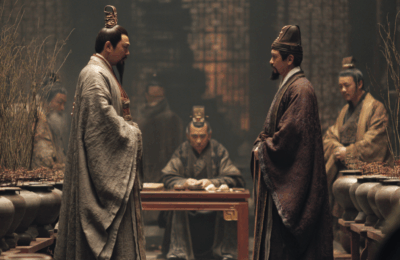《上博九:成王為城濮之行 | 楚成王的HR火葬场》
在距今两千六百多年前的楚国,一场“招聘面试”决定了国家的命运。这篇出自上海博物馆藏战国楚简第九册的《成王為城濮之行》,记录了楚成王出征前选将的全过程: 一位是高压执行的“绩效狂人”,一位是宽柔治军的“团队教练”。成王看清了人性,却依然做出错误的选择。这场古代的“人事决策”,预言了城濮之败,也折射出千年未解的管理难题——制度与人性,理性与柔性,KPI与OKR,究竟谁能带领团队穿越险境? 在竹简的光影之间,我们听见的不只是战争的前奏,更是文明对“判断”的试炼。Over 2,600 years ago in the State of Chu, a recruitment interview determined the fate of an empire. The bamboo manuscript Cheng-king’s March to Chengpu (Shanghai Museum Vol. IX) records how King Cheng faced a choice before war: one commander ruled by fear and performance metrics, another by trust and rhythm. The king saw human nature clearly, yet still chose wrong. This ancient HR dilemma foretold the defeat at Chengpu—and reveals a timeless question: Between system and humanity, control and compassion, KPI and OKR, which truly sustains a civilization? In the soft gleam of bamboo slips, war becomes a mirror for judgment itself.

